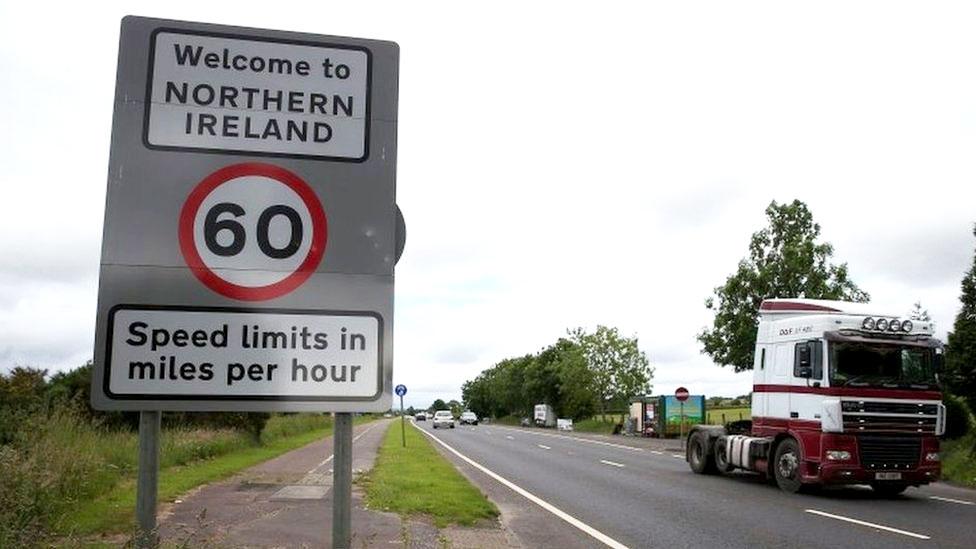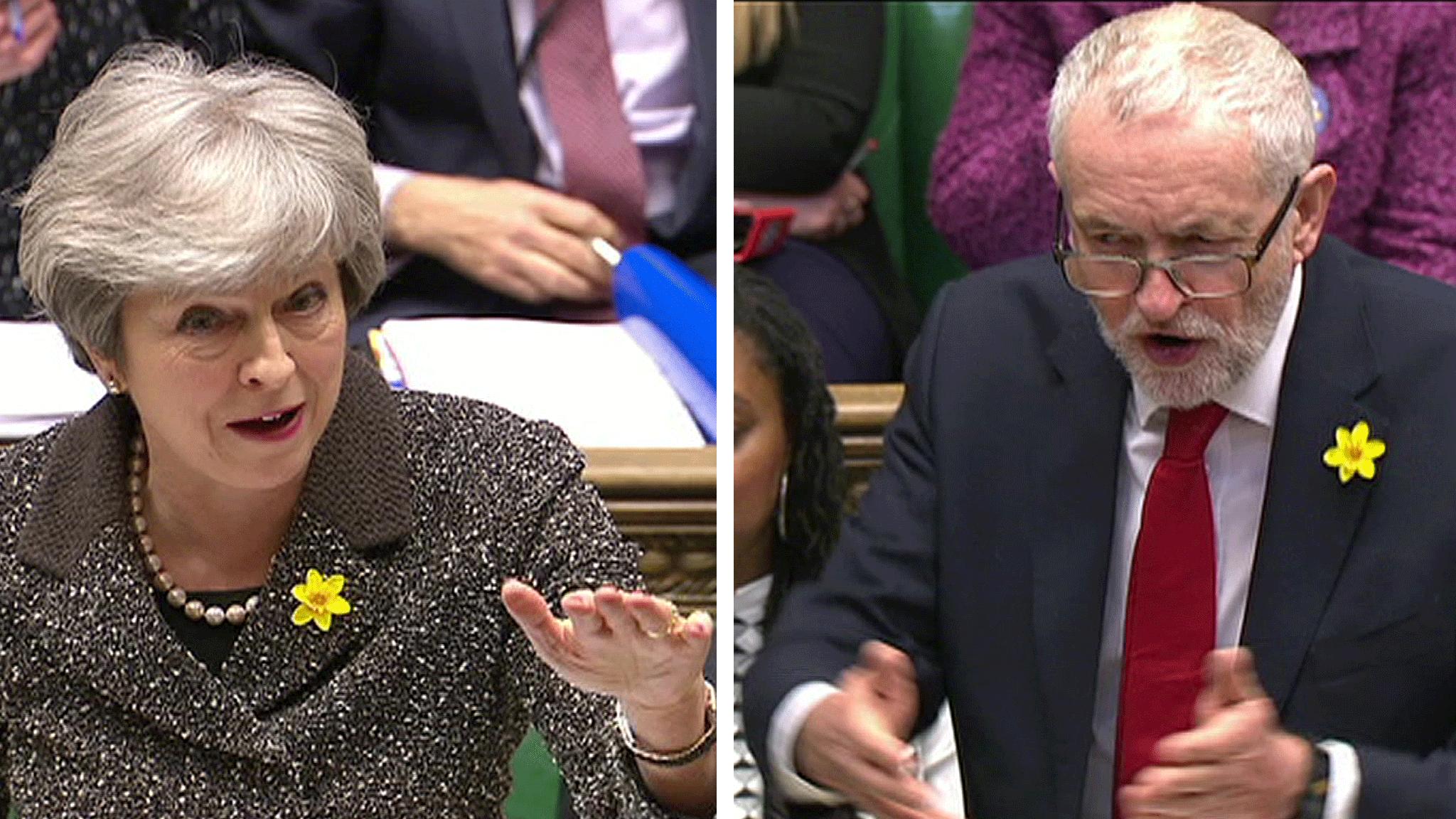Brexit withdrawal agreement row: Real crisis or par for course?
- Published
Michel Barnier: I'm not trying to provoke anyone
"Are you trying to provoke the UK government?" was my question today to Michel Barnier, the EU's chief Brexit negotiator.
His favourite maxim is "stay calm and keep negotiating" but, I put it to him, he was surely well aware of the explosive reaction that would probably follow in the UK after seeing the European Commission's protocol on the Irish border.
So was this an EU ruse to rouse the UK government into focusing on and speeding up negotiations? After all, Mr Barnier never tires of pointing out that the time to negotiate is running out.
No, he told me. His aim was not to provoke or to create shockwaves. He wanted to make these negotiations a success. But, he added, he had long warned the UK that leaving the EU would have serious consequences.
The commission's proposal for Northern Ireland appeared today as part of its draft UK withdrawal agreement.
This is the European Commission's interpretation - in legally binding language - of the agreements it believes have so far been reached with the UK government. They include the so-called Brexit Bill and the rights of EU citizens in the UK and UK citizens in the EU after Brexit, and separately outline issues the commission still wants to be negotiated.
No final agreement has yet been reached on the Irish border conundrum and the fudged compromise settled on just before Christmas became painfully exposed on Wednesday.
Both the EU and the UK say they are committed to safeguarding the Good Friday Agreement and avoiding the re-introduction of a hard border between Northern Ireland and the Irish Republic.
The UK believes this can be done as part of an eventual far-reaching free trade agreement with the EU and with the help of smart technology.
These are known as options A and B on Ireland.
Would you notice if you crossed the Irish border? (Video from 2017)
The EU has insisted - and the UK agreed back in December - on an option C as a fallback plan.
This would see full regulatory alignment between Northern Ireland and the EU in areas necessary to maintain North-South cross border co-operation.
In the absence to date of any concrete detail from the UK on how options A or B would work, the European Commission has gone to town in this draft withdrawal agreement on option C - including Northern Ireland staying in an EU customs union and in relevant parts of the single market, all under the jurisdiction of the European Court of Justice.
Michel Barnier insisted it was the EU's duty to ensure the integrity of the Good Friday Peace Agreement after Brexit, but you couldn't have crossed more UK lines if you'd tried.
And, right on cue, all the main actors delivered the lines you would expect.
Theresa May rejected the commission's text, vigorously defending the territorial integrity of the UK. She is mindful of course of the strong opinion of Northern Ireland's Democratic Unionist Party (DUP), which she relies on for support in the UK parliament.
May: I'll make opposition to plans 'crystal clear' to EU
Michel Barnier, meanwhile, defended the position of EU member state Ireland.
But before you go away, head in hands, thinking: we're in another deep Brexit crisis - we are actually slap back in the middle of a negotiation.
There were strong words but no-one slammed any doors today.
The commission's draft text will now be debated and possibly amended by the 27 EU member states before then being presented to the UK government for negotiation.
In the next stage of this drama Donald Tusk, the President of the European Council, heads to London to see the prime minister ahead of her Brexit speech on Friday.
The EU says it will be listening closely.
On Monday, Michel Barnier meets DUP leader Arlene Foster and Sinn Féin deputy leader Michele O'Neill.
And as a parting shot on Wednesday - in an apparent spirit of compromise even if on a separate Brexit subject - the UK has offered a step towards more rights for EU citizens coming to the UK during the transition.
Still, as one EU diplomat pointed out to me soberly, be under no illusion, the Irish question still has the potential to bring the whole Brexit deal tumbling down.
- Published28 February 2018

- Published28 February 2018

- Published28 February 2018
